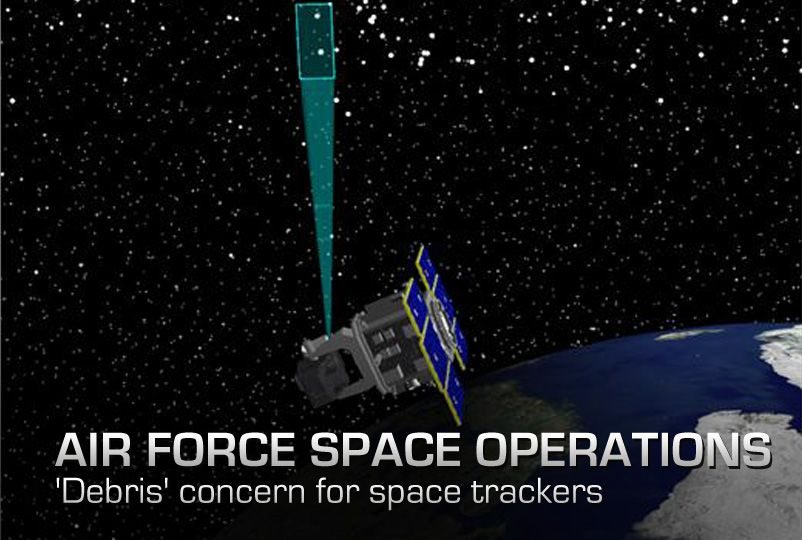Members of the 1st and 7th Space Operations Squadron took notice when an upper stage Russian rocket disintegrated in low earth orbit Oct. 16. The break up introduced an estimated 500 pieces of debris into an area where the U.S. operates a multitude of satellites, further congesting an already crowded orbit around Earth.
The event sheds light on an ever-growing issue for the space and satellite industry, one that seemed far fetched only a few years ago.
“The idea that big space would someday become crowded was more theory than fact,” said Lt. Col. Mike Manor, 1 SOPS commander. “Now, the reality is that space is growing seemingly smaller as more objects are now orbiting Earth. Few people realize there are men and women dedicated to assuring safe passage for our assets in space.”
The Space Based Space Surveillance satellite and its sister, the Advanced Technology Risk Reduction satellite, were designed to provide space situational awareness of the geostationary belt, but increasingly are being tasked to support space situational awareness in other orbits as well.
A collision with something as small as a bolt, a rivet, even bits of shrapnel, traveling at a high rate of speed can render a satellite inoperable, if not totally destroy it, thus it’s becoming ever more important to accurately track such debris.
Along with radar and optical sensors on the ground, SBSS and ATRR are providing that tracking data to the Joint Space Operations Center, the organization that keeps a real-time catalog of orbiting objects.
Maj. Patrick Slaughter, 1 SOPS assistant director of operations, says demand for this tracking data will do nothing but grow in the years ahead as space gets more congested and contested.
“For the longest time, we as a nation, held on to the idea that space is a big place, but most people don’t understand what’s happening up there,” he said. “Break ups like this add to the congestion, but we also have events like the Chinese Fengyun incident, that brought attention to the idea of contested space.”
In 2007, the Chinese government demonstrated the effectiveness of an anti-satellite system by destroying one of its own weather satellites, the Fengyun-1C weather satellite, via a ground-launched missile. Besides creating a large debris field, the event showed that China possesses the capability to “kill” a satellite in LEO. Manor pointed out that it’s not a big leap to assume they could do this to a U.S. satellite.
“The number of debris avoidance maneuvers required by the International Space Station has significantly increased since that incident,” Slaughter said. “Then we had the Iridium-Cosmos collision in 2009, where a U.S. and Russian satellite collided over Siberia. We have to maneuver our LOE satellites around that debris field as well.”
Manor said these combined events, among others, have not only helped drive international policy negotiations, but signaled that the world has recognized a need for better awareness of what’s happening in space.
“We can use the evolution of air travel as a model,” he said. “When the Wright brothers first took flight the skies were open. Gradually, more aircraft shared the skies and eventually we reached a point where we needed air traffic controllers and regulation to keep air travel safe. Now, we’ve taken the rudimentary steps for space traffic control.”
When the JSPOC detects a satellite is on course to collide with something, they provide a warning to that system’s operators. No doubt similar conversations happen hundreds if not thousands of times a day between air traffic controllers and pilots.
Placing this all in perspective, why does it matter what operations crews at 1 and 7 SOPS do?
“Along with the ground tracking stations and the JSPOC, our team is keeping watch over space and will remain vigilant in keeping the domain as safe as possible,” Manor said. “These collective efforts not only help minimize the potential for disastrous events, but also keep the space domain in a condition for continued utilization by all nations.”










